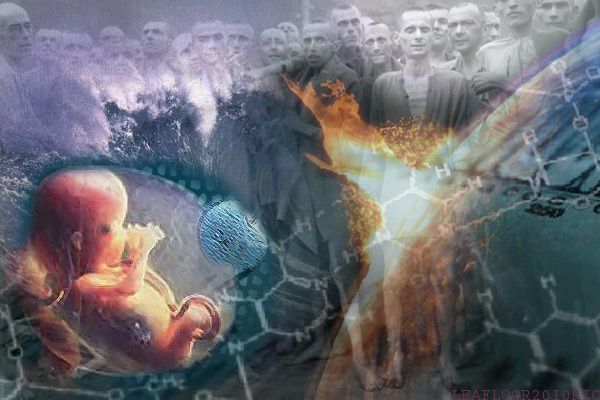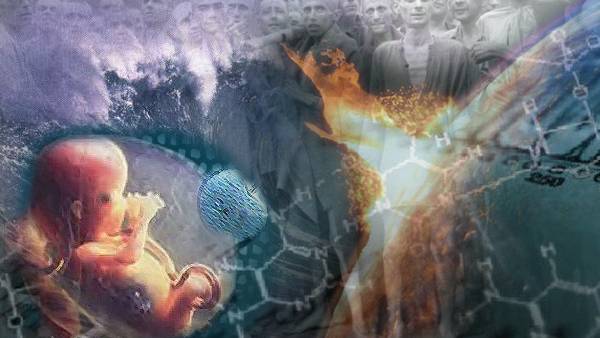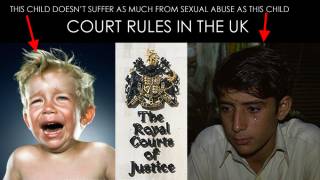PTSD Survivor’s Children May Have Genetic Scars
Source: time.com

The Holocaust is a crime that never seems to quit. Even as the ranks of survivors grow smaller each year, the impact of that dark passage in history continues to be felt. And it’s not just the victims who feel the effects; it’s their children too.
Psychologists have long been intrigued by the emotional profile of so-called second-generation Holocaust survivors. Parents who lived through the camps were forever changed by the horrors they witnessed. In the 21st century, many — probably most — would be recognized as suffering from posttraumatic stress disorder (PTSD). Back then, the absence of such a diagnosis also meant the absence of effective treatments. As a result, a generation of children grew up in homes in which one, and sometimes both, parents were battling untold emotional demons at the same time they were going about the difficult business of trying to raise happy kids. No surprise, they weren’t always entirely successful.
Over the years, a large body of work has been devoted to studying PTSD symptoms in second-generation survivors, and it has found signs of the condition in their behavior and even their blood — with higher levels of the stress hormone cortisol, for example. The assumption — a perfectly reasonable one — was always that these symptoms were essentially learned. Grow up with parents afflicted with the mood swings, irritability, jumpiness and hypervigilance typical of PTSD and you’re likely to wind up stressed and high-strung yourself.
Now a new paper adds another dimension to the science, suggesting that it’s not just a second generation’s emotional profile that can be affected by a parent’s trauma; it may be their genes too. The study, published in the journal Biological Psychiatry, was conducted by a team led by neurobiologist Isabelle Mansuy of the University of Zurich. What she and her colleagues set out to explore went deeper than genetics in general, focusing instead on epigenetics — how genes change as a result of environmental factors in ways that can be passed onto the next generation.
To conduct their work, Mansuy’s team raised male mice from birth and continually but unpredictably separated them from their mothers from the time they were one day old until they were 14 days old. Thereafter, the animals were reared, fed and cared for normally, but the early trauma took its toll.
As adults, the subject animals exhibited PTSD-like symptoms such as isolation and jumpiness. More tellingly, their genes functioned differently from those of other mice. The investigators looked at five target genes associated with behavior—most notably, one that helps regulate the stress hormone CRF and one that regulates the neurotransmitter serotonin — and found that all of them were either overreactive or underreactive.
These mice, for the purposes of the study, were the equivalent of first-generation Holocaust survivors. They then fathered young and, like most males of the species, had nothing to do with their upbringing. The pups were raised by their mothers with none of the trauma and separation their fathers had suffered, and yet when they grew up, not only did they exhibit the same anxious behavior, but they also had the same signature gene changes.
"We saw the genetic differences both in the brains of the offspring mice and in the germline — or sperm — of the fathers," says Mansuy.
Mouse studies, by their definition, are limited, particularly when the animals are being used as stand-ins not merely for human biology but for human behavior as well. Still, in this case, the nonhuman models were actually an advantage, since you could hardly run a control experiment in which second-generation survivors of the Holocaust were separated from their fathers, ensuring that you were studying inherited — not acquired — traits. What’s more, says Mansuy, is that "with animals, you can study the brain in detail."
That doesn’t mean that some studies seeking similar findings couldn’t be conducted in human subjects. Straightforward analysis of blood, plasma and sperm from volunteers could reveal signs of genetic changes similar to those seen in mice. And a deeper analysis of the mouse genes should yield other target genes to study in people. "We’re now doing a high throughput study of hundreds of genes that go beyond the first five," says Mansuy.
The Holocaust is hardly the only life crisis that can shape behavior and genes. Survivors of Afghanistan, Iraq or Darfur — or even those who grew up in unstable or abusive homes — can exhibit similar changes. But Holocaust survivors remain one of the best study groups available because their trauma was so great, their population is so well known, and so many of them have gone on to produce children, grandchildren and even great-grandchildren. Humans, alas, may never run out of ways to behave savagely toward one another. But the better we can understand the price paid by the victims — and the babies of the victims — the better we may be able to treat their wounds.
Article from: Time.com
[Ed Note: This is an interesting article in that it might lend support to those who theorize that ancient peoples who suffered trauma in a global catastrophe might have transmitted that antediluvian knowledge through genes. May we still be traumatized today by the same genetics that experienced a near-extermination of our species in ancient past? Are there warning signs still around us today, telling us we should beware?
Is Jung being proven correct when he spoke of a ’collective unconscious’ wherein "exists a second psychic system of a collective, universal, and impersonal nature which is identical in all individuals."
~E
Also tune into:
Bruce Lipton - The Biology of Belief
Bruce Lipton - The Biology of Belief Continued
Michael Dunning - The Sacred Yew Tree: The Embryonic Tree of Life
Lynne McTaggart - The Intention Experiment
Gregg Braden - The Divine Matrix
Paul A. LaViolette - Earth Under Fire, Galactic Superwaves & Subquantum Kinetics
Michael Tsarion - Irish Origins Part 1 - The West to East Movement of Civilization, Land Bridges & Age of Catastrophe
Edmund Marriage - Global Catastrophe, Restart of Civilization & The Anu-Nagi (The Shining Ones)
Lucy Wyatt - The Ancient Elite & The Future of Civilization
Colin Wilson - The Outsider, The Robot, Magic & the Occult
Marcel Kuijsten - Julian Jaynes, the Bicameral Mind & The Origin of Consciousness
Marcel Kuijsten - Entheogens, Dreams, the Unconscious & Neurology






















